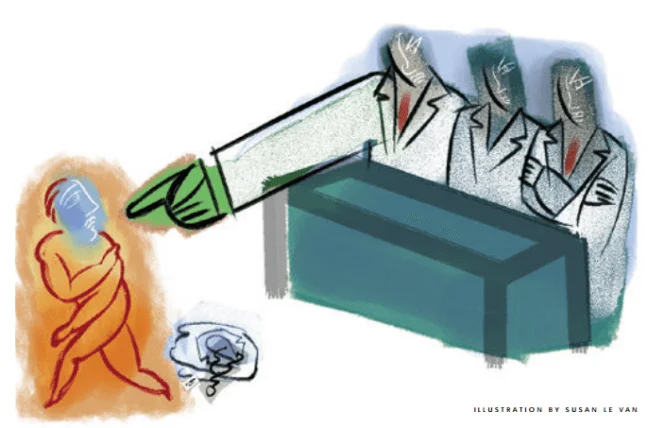The Health Care Quality Improvement Act of 1986 (HCQIA) had many unforeseen consequences, not the least of which is the rise of ‘sham’ peer reviews. A sham peer review is an adverse action taken in bad faith against a physician by a professional review board, for some purpose other than the furtherance of quality health care. These reviews are done under the guise of a legitimate peer review, but in reality can be done as pretext for many different bad-faith motives. These motives can include retaliation against a physician whistleblower, elimination of physician competition, or simply trying to run a doctor out of town due to conflicts with hospital administrators.
The HCQIA has helped to enable this by creating a presumption that any professional peer review action is warranted on the facts in furtherance of quality health care, while granting qualified immunity to those who perform the peer review. In theory these ideas were created to promote effective peer review, however its effect has been to create an assumption of guilt for the accused physician, placing them with the burden of proving their own innocence. This opens the door for the process to be abused by hospitals who want to remove certain physicians. Likewise, due to the HCQIA’s broad definition of “peer”, these review boards can and often do consist of health care professionals who are not certified or qualified to oversee the medical subject matter at question in the review.
The Veterans Administration in particular has had its share of problems relating to sham peer reviews. The past several years we have witnessed an increase in reports from VA physicians and nurses that they were the victim of a sham peer review after making whistleblower disclosures regarding the improper care of veterans, including, but not limited to excessive wait times. The pretext for initiating these reviews frequently start with reprimands and salary decreases citing the physician’s “decreased” or “limited” competencies, often despite these physicians having received contradictory work ratings previously.
A health care professional faced with a sham peer review faces many challenges. Due to recent court decisions, including a Fifth Circuit Court of Appeals case, the standard on which a victim of a sham peer review can seek remedy has been set extremely high. While an accused physician can present evidence of the bad-faith motives of the review board, courts have consistently held that the presumption of reasonable belief given to professional review boards creates an ‘objective inquiry test,’ whereby the good or bad faith of the board becomes irrelevant. This ‘objective test’ standard combined with the qualified immunity for the review board members creates an environment adverse to the accused physician who is now at the mercy of the board, an environment almost completely shielded from judicial review.
The results of these sham peer reviews can follow a doctor around for the rest of their career, branding them with a “scarlet letter” and making them unemployable in many health care settings. Additionally, regardless of a future outcome or review by a state licensing board, hospitals do not have to remove their adverse action against the physician from the National Practitioner Data Bank, meaning even if absolved an accused physician can be severely negatively impacted by a sham peer review.
Although the Whistleblower Protection and Enhancement Act (WPEA) does provide some protections for whistleblowers, the law does not adequately shield physicians and other licensed medical professionals from these malicious attacks to their livelihood. The WPEA only provides protection for retaliation that falls squarely within the definition of a “prohibited personnel practice” (PPP); which a sham peer review is not. Therefore, whistleblowers remain vulnerable and require an aggressive and multifaceted approach to defending against this type of retaliation until such time the law is changed. Additional information regarding PPPs can be found on the Office of Special Counsel’s website, www.osc.gov.
Due to the potentially severe consequences facing a victim of a sham peer review, it is vital to consult an experienced federal employment attorney who is knowledgeable in whistleblower protection. If you have been retaliated against for voicing concerns of patient safety, contact the Solomon Law Firm, PLLC to determine if you have a viable case.

